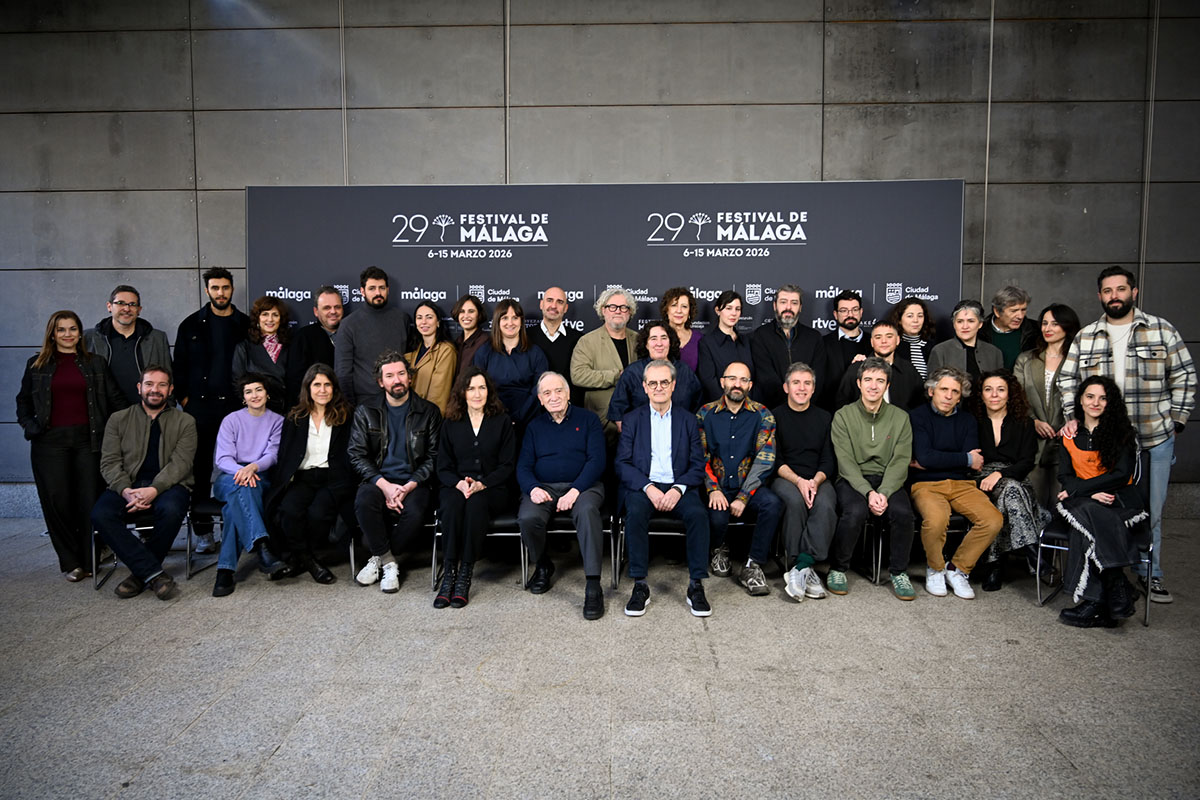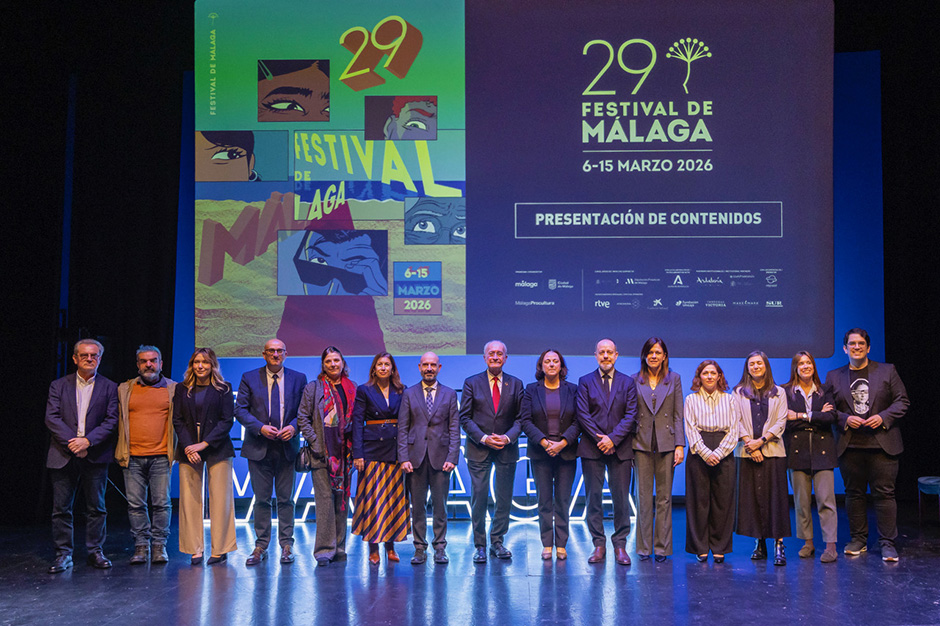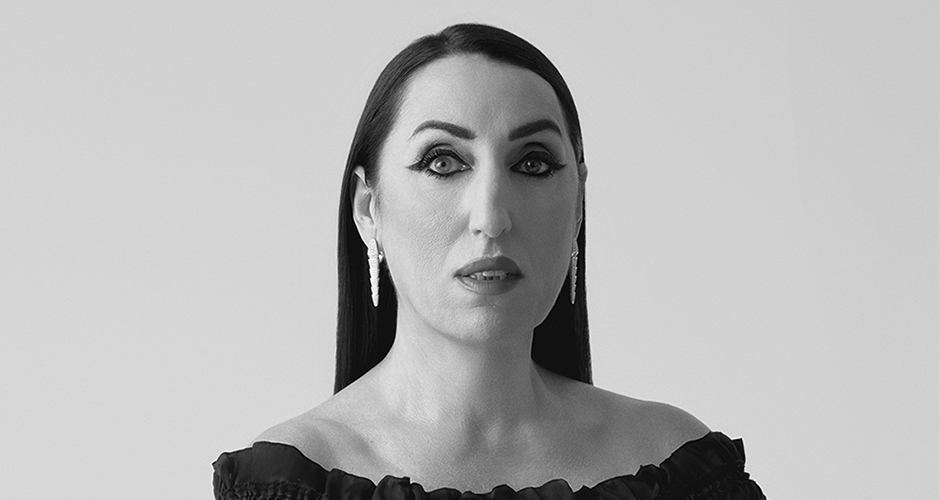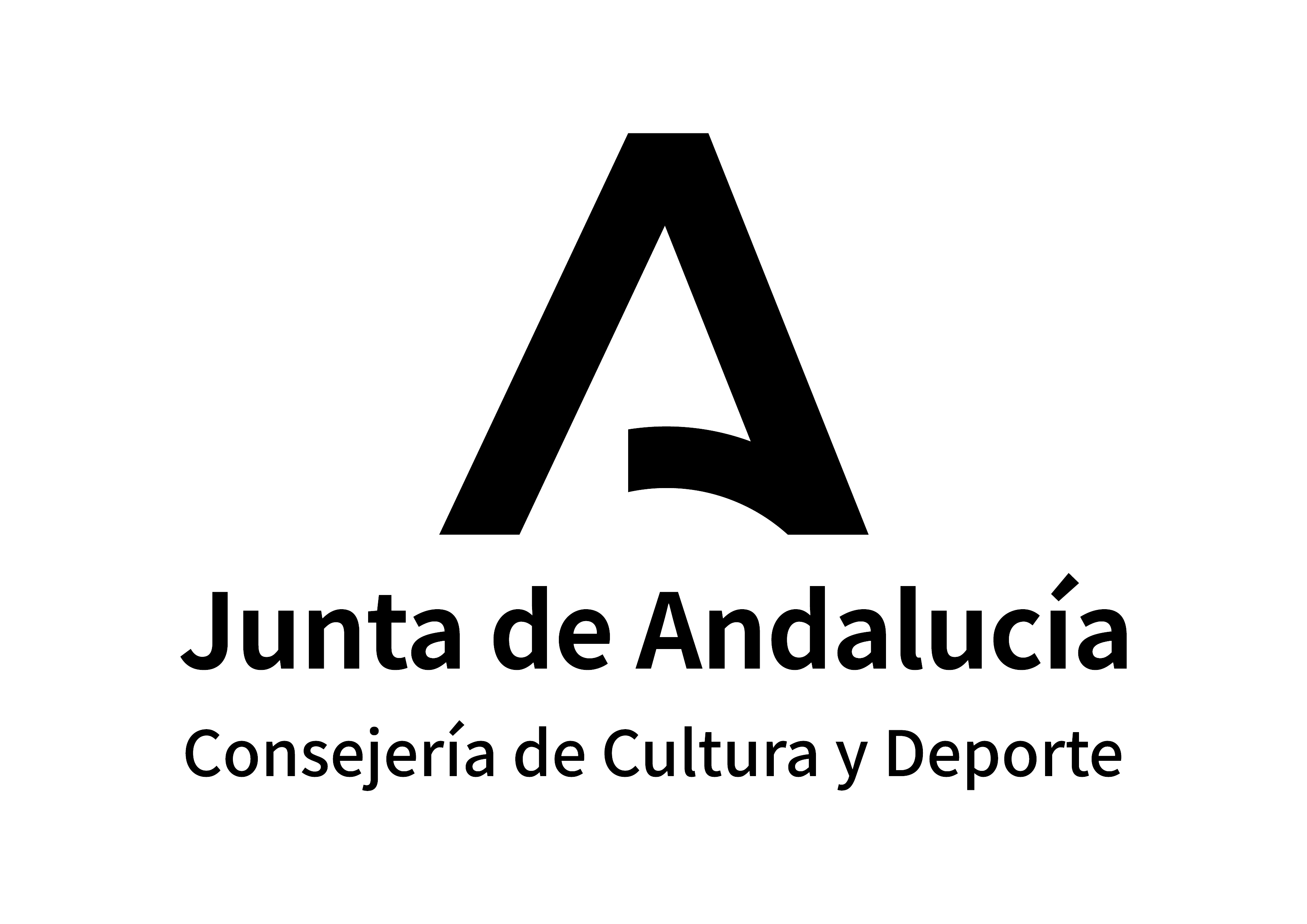Fundación AISGE highlights the precarious situation of Andalusian artists at Festival de Málaga
Susana Córdoba and Iván Arpa, patron and coordinator of the foundation’s Welfare Department, respectively, detailed the ‘Informe sociolaboral de actores/actrices/as y bailarines/as’ (Social and labour
At midday this afternoon, the Rossini Room hosted a talk by Fundación AISGE about the precarious situation in which artists live at a national level, with special emphasis on those who work in Andalusia. The event was attended online, via video call, by Emilio Gutiérrez Caba and Abel Martín, President and Director of the foundation, respectively; in person, by Susana Córdoba and Iván Arpa, Patron and Coordinator of the organisation’s Welfare Department, respectively; and Juan Antonio Vigar, Director of the Festival de Málaga, who explained the socio-labour report on actors/actresses and dancers that AISGE draws up every year.
Making a living from art is by no means easy anywhere in Spain, but it’s even more complicated in Andalusia. Only 9 percent of actors, actresses and other audiovisual artists based in the eight Andalusian provinces earn more than 18,000 euros a year (little more than the minimum wage, which is equivalent to almost 16,000 euros), a much lower rate than the average for Spain as a whole, where those who manage to earn more than 18,000 euros account for 16 per cent of the total. What’s more, three out of every four AISGE members surveyed in Andalusia – exactly 75 percent – earn less than 6,000 euros a year for their artistic work, while ‘only’ 60 percent of artists at the national level are in this situation.
These figures are contained in the ‘Social and labour report on actors/actresses and dancers in Spain’, an exhaustive analysis that the Fundación AISGE carried out throughout 2023 on the basis of 3,410 surveys conducted amongst its members at a national level, nearly 300 of whom are from the Andalusian area. The dimensions of this fieldwork, which covers almost 40 percent of the country’s audiovisual artists, endorse the reliability of a study that shows that 84 percent of Andalusian professionals are below the poverty line in terms of their income from the sector (72 percent in Spain as a whole).
The enormous difficulty of making ends meet from artistic activity alone means that the vast majority of respondents have to consider a plan B; that’s to say, find a second source of income outside of performing. The situation improves somewhat, of course, if we take into account this additional income. Those surveyed in Andalusia who earn more than the aforementioned 18,000 euros a year account for 21 percent, while 37 percent of our artists in the autonomous region earn less than 6,000 euros a year. Even so, a very high percentage of Andalusian artists remain in poverty, which is understood for statistical purposes as earning less than 60 percent of the minimum interprofessional wage. This equates to 57 percent of Andalusian artists (44 percent of all Spanish artists, 20 percent of Spanish society as a whole).
As ‘there’s no other option’, Andalusian artists who resort to the aforementioned plan B or second source of income account for 60 percent of the total, a significantly higher figure than the general figure for Spain (52 percent). And these second jobs are very often ‘anything going’: in three out of four cases (73 per cent), the second jobs Andalusian actors and actresses embark on have nothing to do with the arts or culture sector.
The current rate of artistic unemployment (professionals without work in their profession) in Andalusia, according to the findings compiled in the Fundación AISGE’s socio-labour report, is slightly over 40 percent. Here, too, the clouds over the sector are thicker than in Spain as a whole (35 percent of the national average). The average number of days worked per year for all artists in Andalusia is 46, although there are significant differences depending on the area of activity: Andalusian dubbing professionals do manage to account for 156 days worked, but the figures plummet to 45 days per year for theatre artists and only 23 days per year for actors and actresses in the audiovisual sector.
The working conditions of these jobs are generally not the best either. Thirteen percent of Andalusian artists confess to working ‘habitually’ without a contract, a rate that is much more alarming in the specific case of dubbing (41 percent). The average daily income for the Andalusian artistic profession is 139 euros, but here too there are significant differences by sector: in the audiovisual sector they earn 246 euros a day, a figure that plummets successively in the cases of theatre (125 euros a day), dubbing (108 euros), and dance, with only 86 euros per day worked.
Share
































